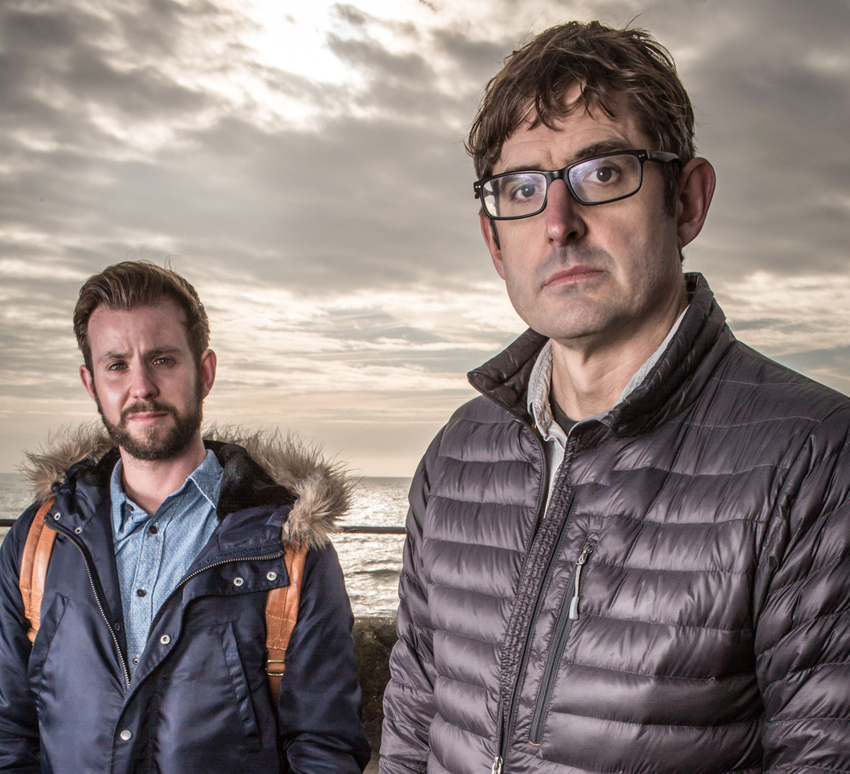Every few months we get a new Project Fear campaign by "experts" announcing that a small glass of Bristol Cream twice a week now qualifies as "binge drinking", and guarantees certain death. However, none of the interviewees in Louis Theroux's latest documentary had paid any attention to these warnings. They were patients at the specialist liver centre at King's College Hospital in south London, and each of them was fighting a different kind of battle with alcohol.
There was Stuart the antiques dealer, suffering from cirrhosis and with perhaps only months to live, though this information was couched in ambiguous statistic-ese – 76 per cent of people in Stuart's condition might die within three months, meaning he might last longer, or on the other hand shorter. He was prone to grotesque bloating, thanks to fluid collecting between his skin and his peritoneum. Nonetheless he remained rogueishly optimistic, even as they pumped out the fluid into a bag on the floor.
Joe looked as though he'd been struck by lightning and then dragged behind a truck
Aurelie, who reached her 45th birthday during the course of filming, seemed sad and lost as she guzzled cans of her favourite tipple, K Cider. Her parents had split up when she was very young (she was from a Cameroonian and Breton background), and she'd spent years in care. Now, she found herself being told by liver specialist Professor John O'Grady that "I'm struggling to see a way forward."
She asked Louis how he felt when he met people like her. "I think you deserve a better life, don't you?" he replied, looking rather melancholy himself. Aurelie certainly wasn't going to find one with a "boyfriend" who, in between draughts of Strongbow, went out of his way to abuse and belittle her.
 The strangest case was Joe (pictured right with Theroux), a 30-something would-be medical professional who'd fallen spectacularly off the wagon after four and a half years of sobriety. When we first met him in hospital, he looked as if he'd been struck by lightning and then dragged across rocky ground behind a truck. His speech was a pitiful quaver, and he could barely stand up. Yet within the blink of an edit, he was out of hospital, had given up quaffing vodka by the litre, and projected an air of cheerful, articulate confidence. By the end of the film, he'd had another drastic relapse, then had moved to Brighton and was once again back on the straight and narrow.
The strangest case was Joe (pictured right with Theroux), a 30-something would-be medical professional who'd fallen spectacularly off the wagon after four and a half years of sobriety. When we first met him in hospital, he looked as if he'd been struck by lightning and then dragged across rocky ground behind a truck. His speech was a pitiful quaver, and he could barely stand up. Yet within the blink of an edit, he was out of hospital, had given up quaffing vodka by the litre, and projected an air of cheerful, articulate confidence. By the end of the film, he'd had another drastic relapse, then had moved to Brighton and was once again back on the straight and narrow.
This wasn't a film full of shattering revelations or the kind of freakshow weirdness that has sometimes been Theroux's stock-in-trade, but it managed to throw a different light on a much-explored topic. As a sympathetic and, dare I say, sober Theroux quizzed his subjects on how they'd got to where they were, alcoholism came to seem more like a complex mix of circumstances and psychological and emotional factors rather than merely a compulsion or a weakness. Wisely, nobody tried to suggest there was any one-size-fits-all solution.















Add comment